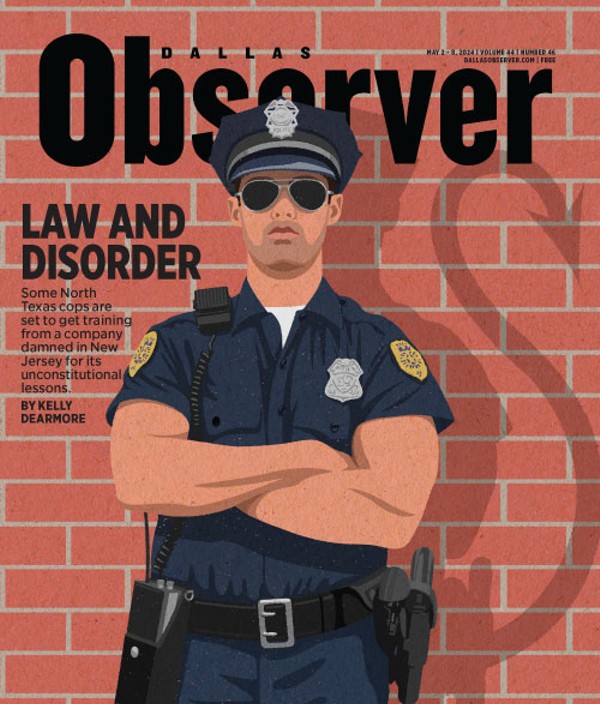I heard a conversation about the Carson appointment on the Diane Rehm Show on NPR, which I love. I had to go back and look online to make sure I had heard one part correctly.
A panelist, Diane Yentel of the National Low Income Housing Coalition, described HUD as being “responsible for working towards insuring that low and moderate income households have decent, safe and affordable homes," as overseeing “a number of large rental assistance programs that serve about 5 million of the poorest families in the country” and as administering “tens of billions of dollars in block grants for community development, homeless assistance, disaster assistance.”
Sure. That would be great, if we could have the least bit of certainty that any of that is what HUD actually does with its money and that it doesn’t just back up an 18-wheeler every year and dump most or all of its $50 billion budget into the Potomac. But according to the HUD Office of the Inspector General (OIG), a watchdog agency within HUD, we would be pretty foolish to operate on optimistic assumptions — something we might even have told the OIG ourselves based on local history with HUD.
A special OIG summary report on HUD issued last month expressed a “disclaimer of opinion” on the agency’s overall finances. Translation: “We have no idea.”
The OIG is saying basically that it won’t put its name or official seal on any kind of definitive conclusion about what HUD does with the fifty B’s every year — even an opinion about it — because of the absence of acceptable accounting practices at HUD.
Oh, yes. We know about that one. I told you last October that Dallas officials were “jumping out of their skins” because HUD officials were demanding to know what Dallas did with $29.9 million in missing HUD funds. Now I feel so naïve.
The picture of HUD finances that emerges from the OIG report is a mirror of what HUD was accusing Dallas of. They don’t have any idea where their money is either or even where it’s supposed to be.
The OIG said they were basing their official finding of no earthly idea on HUD’s “inability to deliver principal financial statements for the fiscal years ending September 30, 2016 and 2015,” also on “several other unresolved audit matters, which restricted our ability to obtain sufficient, appropriate evidence to express an opinion,” and on “11 material weaknesses, 7 significant deficiencies in internal controls, and 5 instances of noncompliance with applicable laws and regulations.”
So let’s say HUD calls Dallas to find out what Dallas did with its check for $29.9 million. And figure that a check for that amount against an annual budget of $50 billion is like a check for $500 from you or me. Not the end of the world, perhaps, but not an amount we can just kiss off, either. I figure the conversation must go like this:
HUD: Hey, didn’t we give you $29.9 million?
Dallas: Did you?
HUD: Didn’t we?
Dallas: Maybe. Can’t remember. I can ask around.
HUD: OK. That’d be good.
Dallas: What was it for?
HUD. Can’t remember. Forgot to write it down.
But, look, from our perspective here in Dallas the most telling thing in the OIG report probably wasn’t even about the money. The main reason we might know a thing or two about HUD in Dallas is the Lockey and MacKenzie case, a bundle of administrative complaints and actions and several lawsuits involving HUD and HUD money, all tied to a downtown tower redo project that went bust when City Hall pulled the plug several years ago.
The latest and maybe most interesting of those lawsuits is before U.S. District Judge Sidney Fitzwater in Fort Worth awaiting the judge’s final decision on whether it can go forward. Fitzwater could kill it with the stroke of his pen, as judges have done with the earlier suits. But if he green-lights this one, then all of a sudden a bevy of top HUD officials including current HUD Secretary Julian Castro, could be court-ordered to answer questions under oath as part of discovery.
This lawsuit is an attempt to use civil litigation to get to the same place the OIG report seems to be pointing — a curtain-ripping behind-the-scenes exposé of HUD as a place where everything is political, little is legal and the money goes out the door in uncounted shovelfuls.
In spite of its shield of administrative immunity, HUD probably is the target of a zillion lawsuits in the nation, most of them ill-fated, but it’s hard to imagine one that could have more devastating potential consequences for the agency should it go forward than Lockey and MacKenzie.
One indication that HUD knows how dicey this suit could be is the stubbornness with which it has refused to release any information that could be construed as even distantly bearing on the underlying facts. I told you last August how HUD’s own lawyers had agreed that I had a right to examine certain documents, but HUD continues to violate federal law by refusing to let me see them anyway. I take that as a good thermometer to show how hot this matter is at HUD.
That brings us to what is perhaps the most astonishing aspect of the OIG report. As part of its examination of the agency, the OIG asked HUD to provide a statement declaring its litigation risks — a parallel to what public companies are required to declare in annual reports. It’s a statement that says, “Here’s who is suing us and what for, and here is what our lawyers tell us in terms of how worried we should be and what might happen if we lose.”
The OIG couldn’t offer an opinion on HUD’s litigation risk, because HUD wouldn’t provide a declaration describing the risk. HUD wouldn’t provide the declaration, because HUD’s own lawyers wouldn’t sign it.
We need to run back over that one again, right? HUD could not provide the declaration to the OIG because HUD’s own lawyers would not sign whatever it was that HUD proposed telling the OIG.
Maybe that one went like this:
OIG: Where’s your litigation declaration?
HUD: Don’t got one.
OIG: What do you mean you don’t have one? Did the dog eat it?
HUD: Lawyers won’t sign it.
OIG: Whose lawyers?
HUD: Ours.
OIG: Your own lawyers won’t sign your own litigation declaration? Did you tell them they needed to sign it?
HUD: Yup. Wouldn’t do it. You know, f’n’ lawyers, how they are.
OIG: All right, so under, “Litigation Declaration,” I’ll just write, “f’n’ lawyers.” And then I’ll write, “How they are.”
Of course, most f’n’ lawyers, how they are in my experience, is real worried about perjury. I don’t know if that was a factor.
The OIG report described the problem as follows:
“In addition, during our fiscal year 2016 audit, HUD’s general counsel refused to sign off on certain matters included in the management representation letter concerning all known actual or possible litigation, claims, and assessments related to HUD, including its component entities. OIG believes that HUD’s legal counsel is responsible for and knowledgeable about those matters that should be considered in OCFO management’s preparation and fair presentation of the financial statements. Due to legal counsel’s refusal to sign off on these matters, which is a scope limitation, we lacked assurance that all known actual or possible litigation, claims and assessments had been properly accounted for or disclosed in the consolidated financial statements in accordance with generally accepted accounting principles.”
I believe the way that same point would be expressed in online parlance is, “WTF!”
The OIG report is a truly nausea-inspiring toes-on-the-edge-of-the-cliff look down into a fiery fiscal abyss of proportions not even remotely comprehensible to innocent forest-dwelling persons like ourselves. After all, we thought not being able to find $29.9 million was a big deal. And I thought HUD would care. Now I blush.
Back to Ben Carson, then: I would be in just as high a dudgeon as the next guy about his nomination if I believed that HUD is out there every day providing fair and decent housing to millions of Americans and that it won’t be able to do its job if it has a somnambulant wackadoodle for a secretary.
But given what we know about HUD from local experience, as confirmed now by this bone-chilling overview by the OIG, I’m hard put to imagine how a somnambulant wackadoodle could make things any worse. At least with a somnambulist, there’s always that one chance that you can’t expect from a person who actually knows what he’s doing: He might stumble on something.











